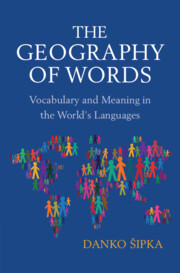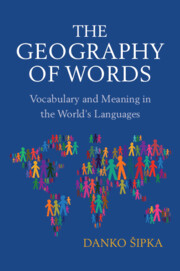Lexical Conflict
The first practical study of its kind, Lexical Conflict presents a taxonomy of cross-linguistic lexical differences, with thorough discussion of zero equivalence, multiple equivalence and partial equivalence across languages. Illustrated with numerous examples taken from over one hundred world languages, this work is an exhaustive exploration of cross-linguistic and cross-cultural differences, presenting guidelines and solutions for the lexicographic treatment of these differences. The text combines theoretical and applied linguistic perspectives to create an essential guide for students, researchers and practitioners in linguistics, anthropology, cross-cultural psychology, translation, interpretation and international marketing.
- Establishes patterns of cross-linguistic lexical differences
- Combines theoretical and applied linguistic perspectives to address the nexus of linguistics, anthropology, cross-cultural psychology, international marketing and other related disciplines
- Provides practical applied linguistic solutions relevant in various fields
Reviews & endorsements
'An abundance of fascinating examples of anisomorphism by an outstanding lexicographer and applied linguist.' Elly van Gelderen, Arizona State University
'A wonderful homage to linguistic diversity and an admirable feat of reconciling language-specific idiosyncracies and cross-linguistic generalizations.' Hans-Jörg Schmid, Ludwig-Maximilians-Universität Munchen
Product details
March 2019Paperback
9781107537057
264 pages
230 × 153 × 18 mm
0.42kg
18 b/w illus. 9 tables
Available
Table of Contents
- 1. Introduction
- Part I. Towards a Taxonomy of Cross-Linguistics Lexical Differences:
- 2. Lexical anisomorphism in linguistic and philosophical approaches
- 3. Cases of lexical anisomorphism
- 4. A taxonomy of cross-linguistic lexical differences
- Part II. Lexicographical Considerations:
- 5. Introduction
- 6. Zero equivalence
- 7. Multiple equivalence
- 8. Partial equivalence
- 9. Lexical anisomorphism in machine-readable dictionaries
- 10. Lexicographic considerations: summary
- 11. Outlook
- References
- Index.






